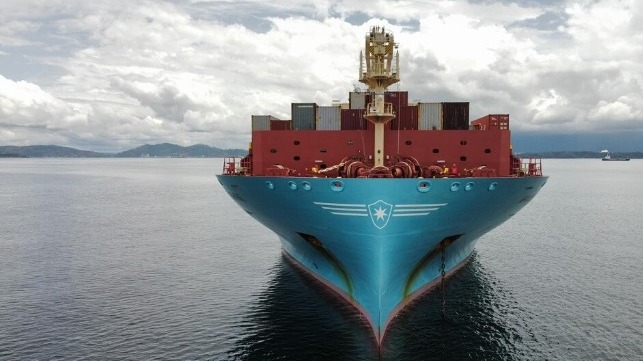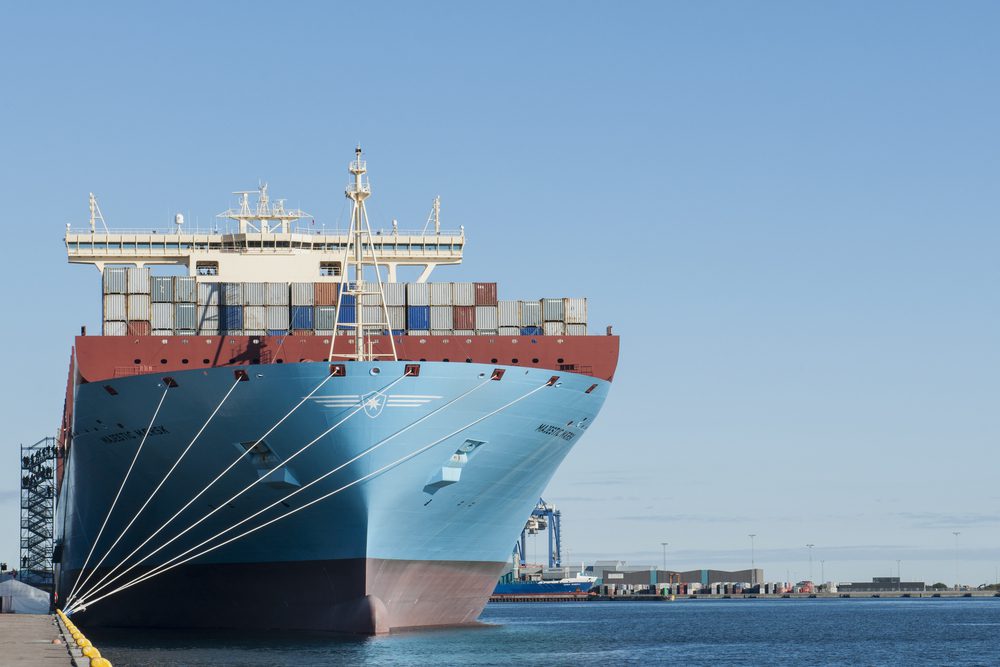OSHA Holds Maersk Line Limited Accountable for Whistleblower’s Firing
The U.S. Department of Labor has found that Maersk Line Limited (MLL), the US-flagged shipping arm of Danish conglomerate A.P. Moller-Maersk, violated whistleblower provisions of the Seaman’s Protection Act by suspending and later terminating a seamen who reported safety concerns to U.S. Coast Guard.
MLL says it disagrees with the decision and plans to appeal.
The Labor Department’s Occupational Safety and Health Administration (OSHA) has ordered MLL to reinstate the seaman and pay $457,759 in back wages, interest, compensatory damages, along with $250,000 in punitive damages.
The Seaman’s Protection Act allows seamen to report safety concerns or violations of maritime laws directly to the USCG and cooperate with federal officials at any time, regardless of company policy.
“Federal law protects a seaman’s right to report safety concerns to federal regulatory agencies, a fact every maritime industry employer and vessel owner must know,” said OSHA Regional Administrator Eric S. Harbin in Dallas. “Failure to recognize these rights can instill a culture of intimidation that could lead to disastrous or deadly consequences. The order underscores our commitment to enforcing whistleblower rights that protect seamen.”
OSHA investigators learned the seaman reported safety concerns about MLL’s containership Safmarine Mafadi to the U.S. Coast Guard in December 2020, including issues with lifeboat gear, unsupervised trainees causing spills, leaks in the starboard tunnel causing flooding, and rusted and corroded deck sockets needing repair. The seamen also reported alcohol consumption by crew members.
Maersk responded by suspending the seaman that same month before terminating them in March 2021, for making the complaint without notifying the company first.
“The U.S. Coast Guard is committed to partnering with OSHA in protecting whistleblowers and to vigorously enforce the Seaman’s Protection Act. We encourage everyone within the maritime domain to support and abide by these protections,” said Rear Admiral and Assistant Commandant for Prevention Policy for the U.S. Coast Guard Wayne Arguin.
Maersk Line Limited, headquartered in Norfolk, Virginia, operates the largest U.S. flag fleet in commercial service. The company employs around 700 U.S. mariners.
In addition to paying backpay and wages, MLL must also change its policy to allow seamen to contact regulatory agencies before notifying the company.
MLL said it disagrees with and is disappointed by OSHA’s “flawed” ruling:
“Maersk Line, Limited (MLL) disagrees with, and is disappointed by the Regional Administrator’s opinion in this case and fully intends to appeal this flawed decision. MLL is proud of its safety culture and its highest priority remains the safety and security of our mariners and shoreside colleagues. MLL cooperated fully with the U.S. Coast Guard in its investigation of these same events and the U.S. Coast Guard’s official report “[i]dentified no evidence that the vessel/crew was not taking appropriate actions to address any safety or equipment concerns.” The U.S. Coast Guard’s report further concluded that it discovered no evidence of violations of law or regulation. The U.S. Coast Guard’s report was in addition to an arbitrator’s decision who considered the same allegations made by this individual which found that the individual’s “sole motivation” was not safety but an “effort to thwart” a disciplinary action against him, concluding, “I find there was no need for urgent action on December 29, and Grievant knew it…In this light, Grievant’s complaints to the Coast Guard were neither reasonable nor in good faith.”
Nevertheless, the case highlights the importance of whistleblower protections for mariners and the need for a transparent safety culture in the maritime industry.
OSHA enforces whistleblower provisions for over 20 statutes that protect employees who report violations of various workplace safety and health, environmental, financial reform, and other laws.
Maersk Line Ltd Ordered to Rehire Chief Mate Who Tipped Off Coast Guard

The U.S. Occupational Safety and Health Administration (OSHA) has ordered Maersk's American division to pay an officer more than $700,000 after it dismissed him for telling the U.S. Coast Guard about alleged deficiencies aboard the boxship Maersk Tennessee (ex name Safmarine Mafadi).
On December 29, 2020, after a disagreement with his captain about alleged drinking on board, the chief mate aboard the Safmarine Mafadi reported a list of concerns about the ship's condition to the Coast Guard. According to the chief mate, the ship's lifeboat block and releasing gear were inoperable, crew members were drinking or in possession of alcohol on the ship, the emergency fire pump was broken, trainees were standing watch unsupervised, and the cargo hold bilge system was causing flooding.
A Coast Guard inspection team came aboard at 1745 hours the same day to look at the ship. The inspectors made note of a leak in the fire main in the starboard tunnel, a cracked safety rail, and lifeboat blocks in need of replacement.
As soon as the inspection was over, the captain suspended the chief mate and ordered him off the ship, according to OSHA. The mate was fired three months later for reporting problems to the Coast Guard "without discussing the issue(s) with the Ship Superintendent, Fleet Group, and the Marine Standards team," in violation of written company policy.
OSHA ruled that Maersk Line Limited's policy and its decision to fire the chief mate both violated the U.S. Seaman's Protection Act. The act allows merchant mariners to report problems aboard a U.S.-flagged vessel to the U.S. Coast Guard, without first going up the chain of command within their company - even if the company says that this is prohibited.
"Federal law protects a seaman's right to report safety concerns to federal regulatory agencies, a fact every maritime industry employer and vessel owner must know," said OSHA Regional Administrator Eric S. Harbin. "Failure to recognize these rights can instill a culture of intimidation that could lead to disastrous or deadly consequences."
OSHA determined that if the mate had not complained to the Coast Guard, he probably would have been promoted to master, based on his performance evaluations and related correspondence. It characterized his dismissal as an "illegal action" which had caused the mate "extreme hardship, financial stress, and suffering."
In its response, Maersk Line Limited argued that the ISM Code requires crewmembers to report issues up the chain of command, and it asserted that the mate had made the report in bad faith. It noted that the Coast Guard had cleared the ship to sail after the inspection.
OSHA has ordered Maersk Line Limited to reinstate the chief mate, promote him to the rank of master, and pay him about $460,000 in back pay, interest and compensatory damages, plus attorney's fees. The agency added the maximum possible punitive damages award ($250,000) to counteract what it described as the "chilling effect already present from Respondent’s illegal policy," and it ordered MLL to revise its internal rules for reporting.
Maersk Line Limited has the option to appeal OSHA's decision to an administrative law judge.
"The U.S. Coast Guard is committed to partnering with OSHA in protecting whistleblowers and to vigorously enforce the Seaman's Protection Act. We encourage everyone within the maritime domain to support and abide by these protections," said Assistant Commandant for Prevention Policy Rear Adm. Wayne Arguin in a statement.

No comments:
Post a Comment